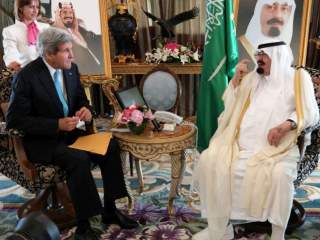Saudi Arabia’s New Strategic Game in South Asia
"Riyadh’s South Asia play is a high-stakes gambit with direct consequences for Iranian nuclear developments, the war in Syria, Pakistan’s stability and Indo-Pakistani peace."
In today’s Syria, a similar problem has emerged. Whereas Washington is acutely concerned that arming anti-Assad groups could easily have Afghanistan-like repercussions, Saudi support (including training rebels and supplying weapons of Pakistani origin) appears to be more focused on the short term. Because the United States shares the basic Saudi desire to remove Assad from power, Washington should first aim to monitor and direct, but if necessary, also to curtail, the flow of Pakistani weapons and trainers in an effort to keep them away from radically anti-Western groups. The paucity of Syrian “moderates,” the stunning battlefield successes of the Islamic State in Iraq and Syria (ISIS), and shifting wartime politics will make this more easily said than done.
Finally, U.S. policy makers should recognize Riyadh’s new strategy for South Asia as only a part of a broader trend of new and more meaningful geopolitical ties between different parts of Asia. The breakdown of traditional regional silos is in this case creating opportunities for Saudi Arabia to counter a nearby rival and to extend its influence into Indo-Pakistani relations. As a true global power, the United States should be well positioned to play across the entire Asian region, but to do so, Washington must break its engrained habits of thought and practice that often blind it to the new strategic connections that are being forged.
Daniel Markey is a senior fellow for India, Pakistan, and South Asia at the Council on Foreign Relations. He is the author of No Exit from Pakistan: America’s Tortured Relationship with Islamabad (Cambridge, 2013).

